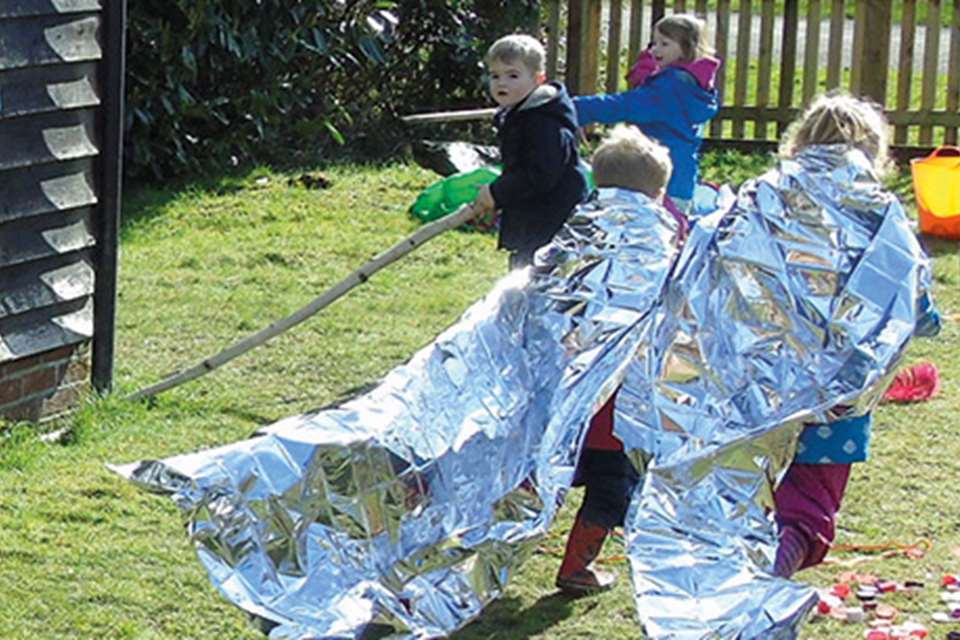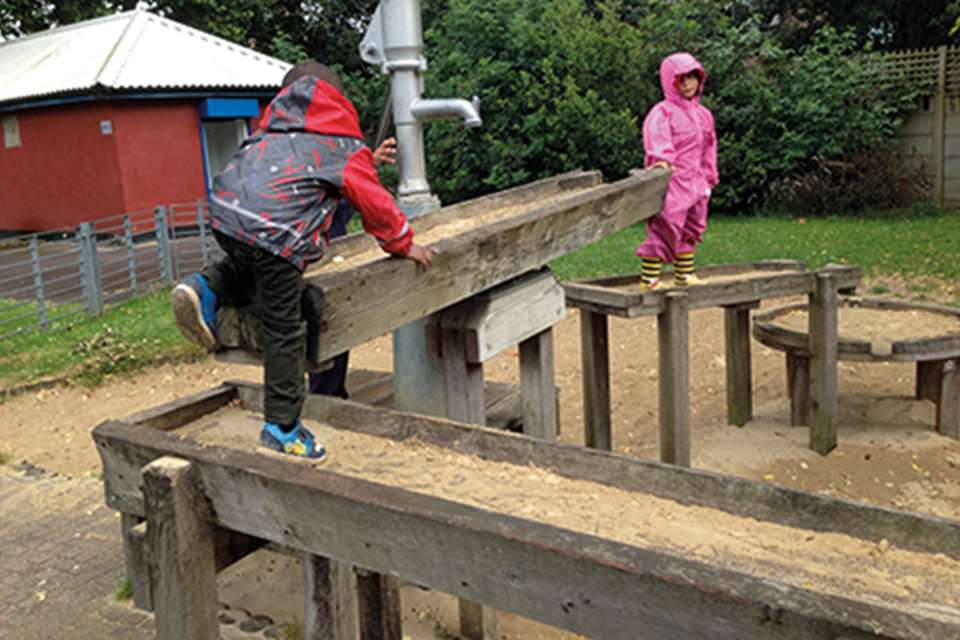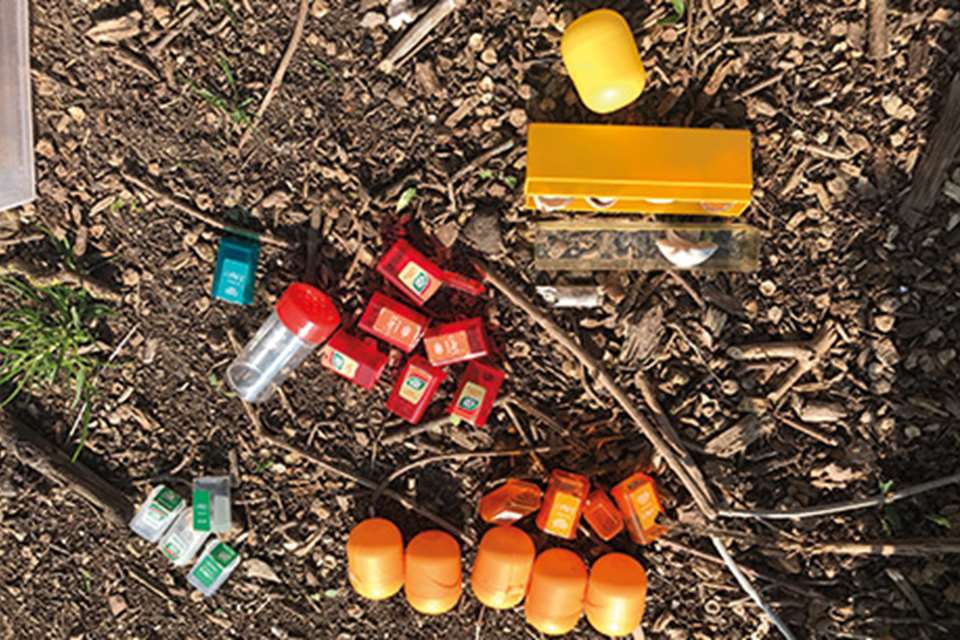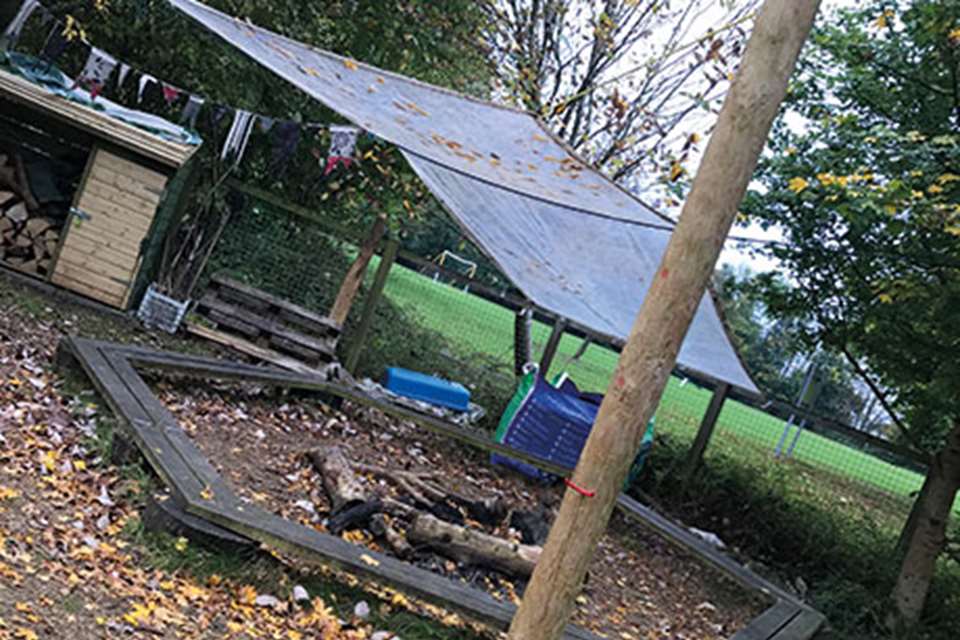EYFS Activities - 5 ways to… mess about with mud
By Julie Mountain
Monday, February 17, 2020
From mark-making to STEM, mud kitchens are a rich resource. By Julie Mountain
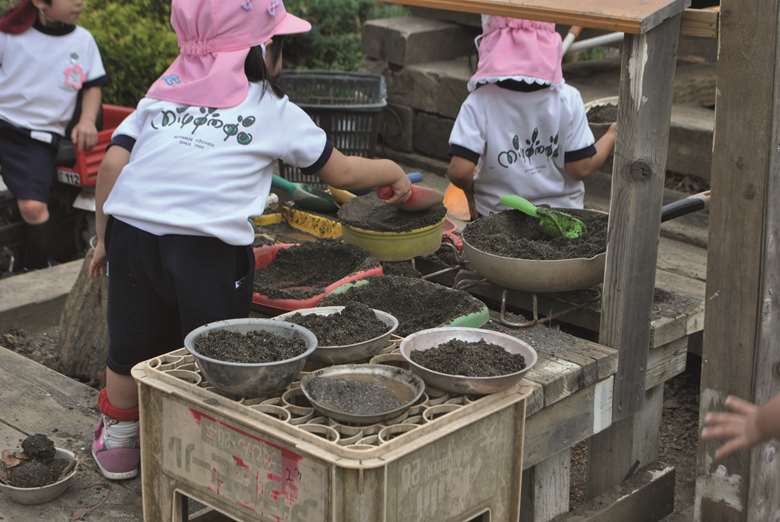
Your mud kitchen is at the heart of science, technology, engineering and mathematics (STEM) learning in the early years. Its potential to help children make sense of seemingly abstract concepts makes a mud kitchen or mud lab an essential element in any outdoor space. Best of all, anything from a washing-up bowl with mud in it can be a mud lab – you really don’t need expensive ready-made equipment.
1 MUD LAB
 In addition to the usual pots and pans, source bottles, jars, squeezy cartons, basting pipettes, measuring jugs, funnels and other vessels that demand a range of fine motor skills. The clear plastic tubes from jumbo bubble blowers make excellent ‘test tubes’ for a mud lab. A large bucket and pelican pump – try HO Plastics, https://buybuckets.co.uk/product/5l-bucket-pump – will provide a ready (but controllable!) source of water.
In addition to the usual pots and pans, source bottles, jars, squeezy cartons, basting pipettes, measuring jugs, funnels and other vessels that demand a range of fine motor skills. The clear plastic tubes from jumbo bubble blowers make excellent ‘test tubes’ for a mud lab. A large bucket and pelican pump – try HO Plastics, https://buybuckets.co.uk/product/5l-bucket-pump – will provide a ready (but controllable!) source of water.
Reinvent the mud kitchen as a mud lab to boost understanding of scientific and mathematical language – you could also provide face masks, aprons and gloves as ‘PPE’, and print off ‘biohazard’ and ‘Wear PPE’-style warning signs.
2 MUD MOVEMENTS
A loose-parts-style mud kitchen offers children opportunities to reshape it to suit their developing physical and intellectual requirements.
If you already have fixed elements, consider introducing a collection of tables, planks, shelf units and crates that children can lift and transport to expand their play. To maximise combinations of big physical movements, try to provide large loose parts in an assortment of sizes and shapes – including awkward items requiring collaboration to move them.
3 MUD MIXING
 Not every child enjoys the sensation of viscous liquids and solids, and it will take patience to convince them to explore the mud area. A fundamental way of encouraging this is to participate fully yourself and let children see you enjoying shared play in the mud.
Not every child enjoys the sensation of viscous liquids and solids, and it will take patience to convince them to explore the mud area. A fundamental way of encouraging this is to participate fully yourself and let children see you enjoying shared play in the mud.
Be properly equipped: if you expect children to wear outdoor gear, you should too. Whether the session is child-initiated or adult-guided, allow children to explore without taking over; be a co-investigator, watching, listening and only questioning when really necessary.
4 MUD STUDIO
Towns and villages in the Peak District celebrate the arrival of spring with beautiful ‘well dressings’ – illustrations, usually Biblical, created with flowers and other natural materials, pressed into clay.
Nip down to your local refuse site and scavenge for old picture frames; remove the glass and press a mixture of mud and clay into the aperture. Create new art using leaves, petals, moss and other found natural materials. Larger frames make useful collaborative projects, but the mud mixture will last longer in smaller frames – spray the mud with water to prolong the picture, but when it eventually cracks up, the frames will be reusable.
5 MUD MARKS
Mud and sticks make excellent mark-making materials. Encourage children to experiment with different degrees of mud gloopiness, as well as varying the diameter and weight of the sticks they use. Brush runny mud onto long lengths of old wallpaper, again offering a range of brush options from toothbrushes (for splattering) to paint rollers and yard brushes. Compare the marks and discuss which brushes would be best for a wall or a delicate painting.

And another thing…
More inspiration for mud mayhem:
- On Pinterest – search for Mud Kitchen Activities and Pallet Mud Kitchen for incredible designs and innovations.
- Buy or download Jan White’s booklet: https://muddyfaces.co.uk/product/making-a-mud-kitchen-by-jan-white
- Do an internet search for ideas on how to celebrate the 33rd annual International Mud Day on 29 June 2020.
- Julie Fisher’s principles of ‘Interacting or Interfering’ apply in the mud area. Check out her book of the same title.






